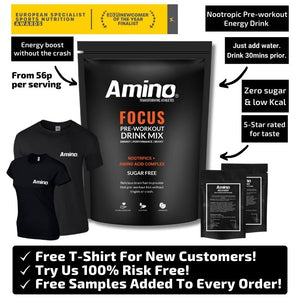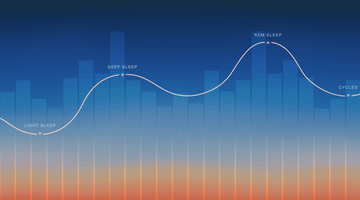In the modern world, we often glorify the hustle, praise the early risers, and idolize those who claim to “get by” on four or five hours of sleep. But science paints a very different—and far more compelling—picture: if there’s one daily habit that holds the master key to your long-term health and lifespan, it’s sleep.
The Foundation of Longevity
Sleep isn't a passive activity; it’s a deeply active process where your body performs critical repair, maintenance, and optimization functions. Think of it as nightly maintenance for a high-performance machine—your body and mind. During sleep, your body:
-
Clears out toxins from the brain (through the glymphatic system)
-
Balances hormones (including those that regulate hunger and stress)
-
Repairs muscles, tissues, and immune function
-
Consolidates memory and sharpens cognitive function
Poor sleep quality and duration are linked with a host of chronic conditions that shorten lifespan, including heart disease, diabetes, obesity, Alzheimer’s disease, and depression. In contrast, consistent, high-quality sleep helps preserve metabolic health, regulate inflammation, and maintain a strong immune system—all essential for a longer, healthier life.
The Science Behind Sleep and Aging
Research from Harvard, Stanford, and leading institutions globally has repeatedly found that poor sleep accelerates biological aging. One of the most interesting markers is telomere length—the protective caps on our DNA that shorten as we age. Shorter telomeres are linked with cellular aging and chronic disease, and poor sleep has been shown to accelerate this shortening.
On the flip side, people who sleep 7–9 hours regularly tend to show better biological age markers than those who sleep less than 6. Simply put, if you want to age slower and live longer, sleeping well is non-negotiable.
Sleep and Mental Health: The Longevity Link
Mental health plays a significant role in healthy aging. Chronic stress, anxiety, and depression not only lower quality of life but also correlate with shorter lifespans. Sleep is one of the most effective tools to protect mental health. Deep, restorative sleep supports emotional regulation, reduces reactivity, and even improves decision-making and resilience.
In contrast, even one night of poor sleep can increase cortisol (the stress hormone), lower mood, and impair judgment. Over time, sleep deprivation becomes a form of chronic stress—one that taxes both mind and body.
Quality Over Quantity
It’s not just about logging hours. The quality of your sleep matters just as much, if not more. Fragmented sleep or a disrupted circadian rhythm (think shift work, late-night screen time, or irregular sleep patterns) impairs the regenerative processes your body relies on. Deep sleep and REM (rapid eye movement) stages are crucial for physical recovery and mental processing, respectively.
To improve sleep quality:
-
Go to bed and wake up at the same time each day, even on weekends
-
Avoid screens and bright lights at least an hour before bed
-
Keep your bedroom cool, dark, and quiet
-
Limit caffeine and alcohol, especially in the afternoon and evening
-
Get natural daylight exposure early in the day
Sleep Is Free Medicine
Perhaps the most powerful and underrated part of this story? Sleep is free. It doesn’t require a prescription, fancy equipment, or a gym membership. Yet it’s one of the most potent tools we have to fight disease, slow aging, and feel truly well.
In a world that often tells us to do more, sleep reminds us that rest is not laziness—it’s strategy. If you’re serious about living a long, vibrant life, it’s time to treat your sleep not as an afterthought, but as a top priority.
Final Thought:
Want to boost your performance, lower disease risk, and stay sharp into your later years? Start with your pillow. Longevity doesn’t begin in a bottle—it starts each night, when you close your eyes and let your body heal.






